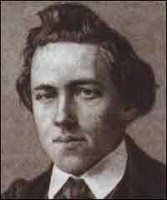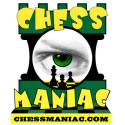CHESS IN AMERICA. (PART I)

On May 25, 1859, there was seen in the chapel of the New York University a very brilliant and numerous company. There were great lawyers and merchant princes, there were women of fashion, there were learned professors and sportsmen, there were "divines, heroes, and poets." These persons had assembled for a singular if not unprecedented purpose. It was that of binding a chaplet of victory on the youthful brow of Mr. Paul Morphy, and of laying at his feet a costly and magnificent token of admiration for his exploits in Europe as a chess player.
Nor was this enthusiasm unshared on the other side of the sea. The press of London and the Continent teemed with Morphy's praise. Public banquets had just been given in his honor by London and Paris clubs. His bust had been crowned with laurel the Cerele des Echecs. The great chess-players whom he had vanquished were foremost in proclaiming his supremacy. "He can give odds to any living player," cried St. Amant, the old opponent of Staunton, and the acknowledgments of Anderssen and others are equally historical.
"There is something exceedingly romantic and chivalrous about this young man's coming over to Europe and throwing down the gauntlet to all our veterans. He is certainly a very Admirable Crichton of chess, and, like the accomplished Scot, he is as courteous and generous as he is brave and skilful." So said a London journal of August 29, 1858; and piquancy and interest are added to the passage by the fact that it was written by Morphy's first great European antagonist, Lowenthal, just after the wonderful American had beaten him in a set match, the first played by Morphy after his arrival in Europe.
Chess, like most things in life, has its ups and downs, and these incidents serve to illustrate the mutations. This effervescence thus noted, which actually spread throughout the world, was wrought by the appearance of a young man of genius, whose marvelous achievements suddenly turned the eyes of thousands to a pastime to which they had given little or no thought before. There were already fine chess-players in the world, but he eclipsed them all. There were strategists of profound ability, men whose skill was embalmed and is still attested in the best chess literature of the time. But this callow boy with his downless cheek eclipsed the graybeards, and bore off with an ease that was most astonishing to those who best knew the nature of the task, the wreaths and the paeans from the strongest experts of Europe.
Like the drama, chess never dies; but, equally like the drama, it has its phases of triumph and splendor, of neglect and decay. Now Morphy, by the same analogy, was the Garrick or Edmund Kean of chess, and his advent gave it a stimulus in America whose effect has waned at times, but has never since ceased to be strongly felt. The first American Chess Congress was held in 1857. Four have since convened, and preparations for the sixth are now in progress. These meetings have promoted the cause of the royal game in various ways. They bring together for friendly conflict and comparison players from all parts of the country. They tend to keep alive the clubs and other local organizations that give attention to the game. They refresh and ratify the various rules and methods that pertain to it; and as it is the custom to publish a "Book of the Congress," which records its proceedings, the games played in the tournaments, and other cognate matters, a valuable addition is thus made from time to time to the body of chess literature.
Dating from the first American congress, which was nearly coincident with the first appearance of Morphy, we have witnessed, then, what may be called a renaissance of chess. In these thirty years clubs have multiplied, strong players have been developed in considerable numbers, and the journals and other periodicals that assign regular space to the game have largely increased. It is true that the measure of that attention has varied. New York newspapers, for example, for some years gave daily space to chess, and have lately omitted to do so; but several of the metropolitan dailies furnish weekly discussions of the pastime, a large number of regular weeklies do the same, there are magazines of monthly issue exclusively devoted to it, and there is one weekly published in New York of a like character.
As to chess clubs, New Orleans, in point of numbers of membership, as befits the birthplace of Morphy, leads the van. The New Orleans Chess Club has 700 members. The Manhattan Chess Club of New York follows with 200. The New York Chess Club has 150. The Brooklyn Chess Club 100; a similar number is boasted by the Boston Chess Club; while the Franklin Club of Philadelphia has but 85. The Chicago Chess Club has 97. The Providence club shows 75 members, and that of Newark 60. There are in New York city four chess clubs, the Columbia, the Jeffersonian, the Turn Verein, and La Bourdonnais, with smaller memberships than those we have enumerated. Besides those named, there are active clubs in Baltimore, Richmond, Milwaukee, Pittsburgh, Albany, Cincinnati, St. Louis, Washington, Nashville, Denver, Louisville, Toledo, Atlanta, and a score of other towns where the sport is practised, and the fire before the altar of Caissa is never suffered to grow cold.
It must be confessed, however, that in some quarters at least it had burned of late rather low, when a recent event, and one hitherto without example, has caused it to blaze up anew with all its former radiance. This consisted in the winning in the summer of 1887, by an American representative, of the first prize at the International Chess Congress at Frankfort.
Who, some readers may ask, and what manner of man is he? and this, therefore, may now to advantage be set forth. Like many others, from Paul Jones to Ulysses Grant, who have in various fields upheld the national honor and shed lustre on our republican escutcheon, the chess champion comes of a sturdy Caledonian stock.
To be continued.
Read part II
Play free online chess!
--------------------------------------------------------------------------------
About the Author
This article by Henry Sedley is from HARPER'S NEW MONTHLY MAGAZINE (Volume LXXVI, December, 1887 to May, 1888), which is in the public domain.



















0 Comments:
Post a Comment
<< Home